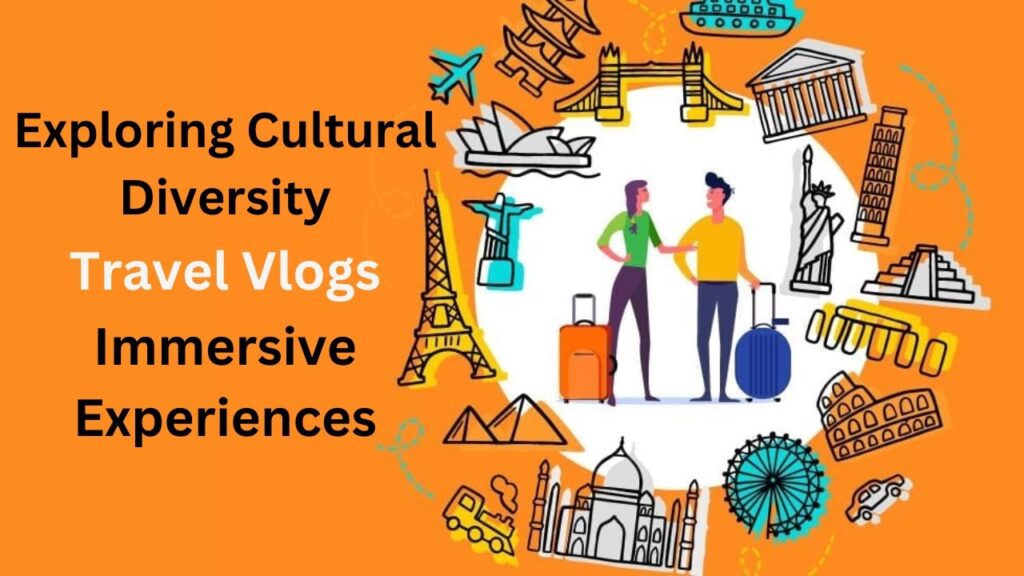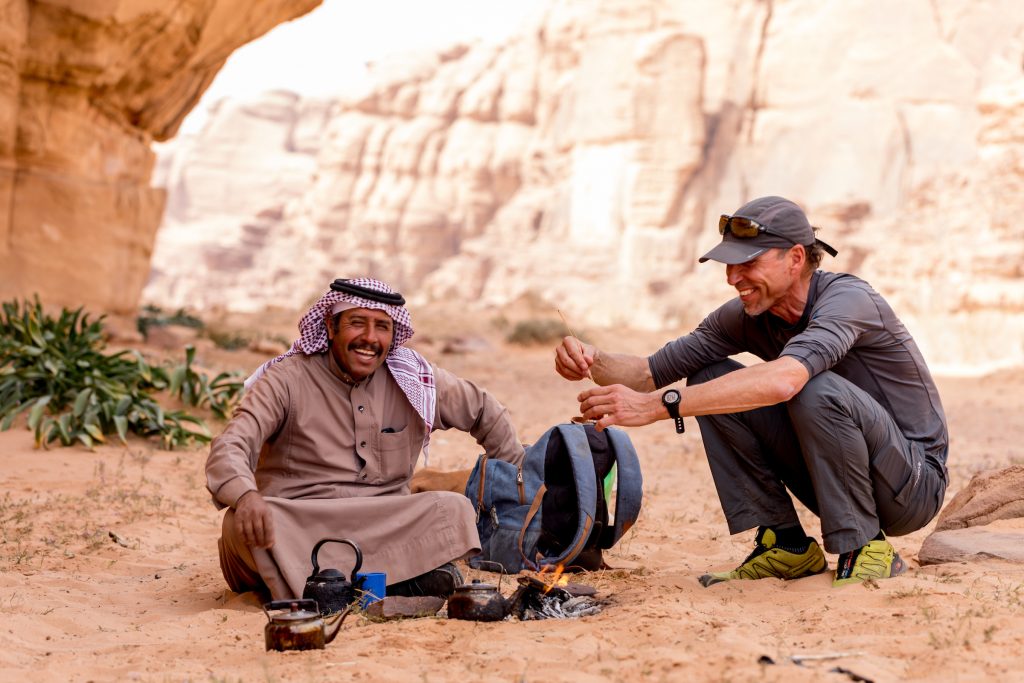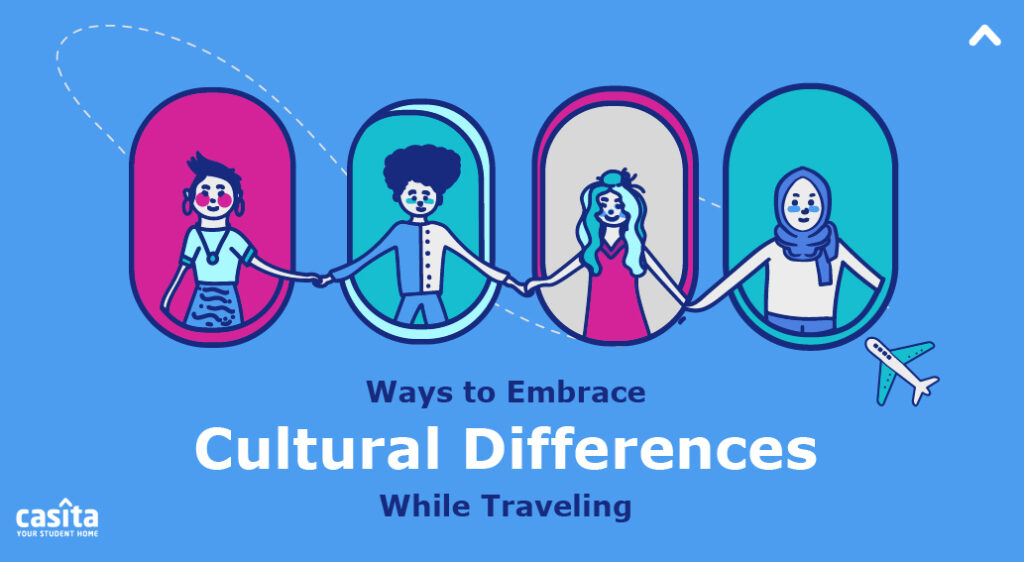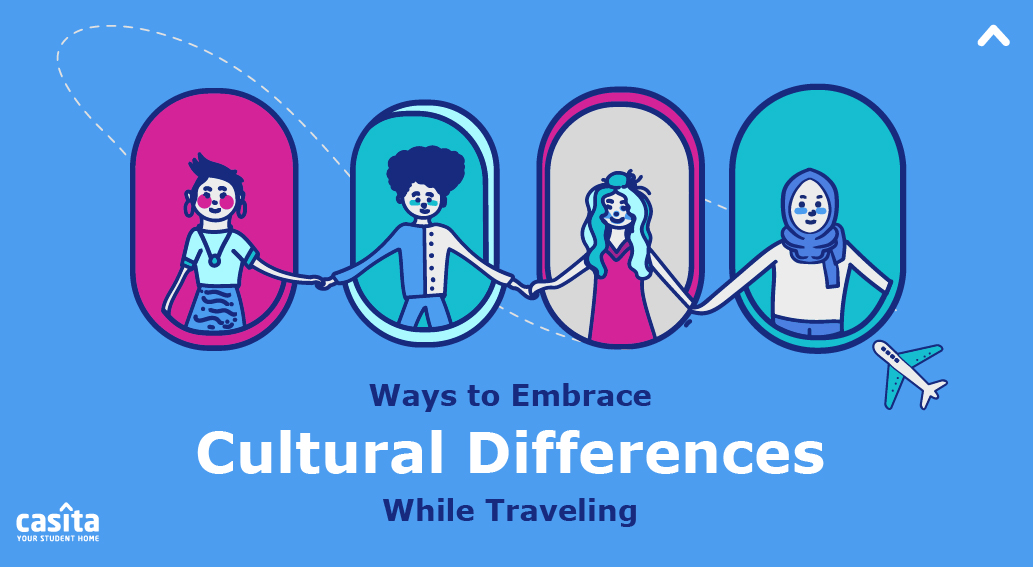Traveling is a wonderful way to expose your children to a world of diverse cultures. As you embark on new adventures together, you create opportunities to learn, grow, and understand the unique traditions, languages, and customs of various communities across the globe. Whether it’s savoring exotic cuisines, exploring ancient landmarks, or engaging with local communities, each step of the journey adds to their understanding and appreciation of cultural diversity. By immersing yourselves in these experiences, you can foster a sense of curiosity, open-mindedness, and empathy in your children that will last a lifetime. So, pack your bags, get ready to explore, and let the world be their classroom!
Benefits of Traveling for Cultural Diversity

Expanding Horizons
Traveling for cultural diversity is an incredible way to expand your horizons and broaden your perspective. By immersing yourself in different cultures, you expose yourself to new ideas, beliefs, and ways of life. This exposure allows you to see the world from a different lens and gain a deeper understanding and appreciation for the rich tapestry of human experience. It opens your mind to possibilities you may have never considered before, fostering a sense of curiosity and promoting personal growth.
Developing Empathy
One of the greatest benefits of traveling for cultural diversity is the development of empathy. As you interact with people from different backgrounds, you begin to understand their unique struggles, joys, and perspectives. This understanding prompts empathy, allowing you to put yourself in their shoes and see the world through their eyes. By cultivating empathy, you become more compassionate and tolerant, fostering harmonious connections between diverse communities.
Promoting Tolerance
Traveling often confronts us with cultural differences that challenge our preconceived notions and biases. It forces us to confront our own cultural biases and promotes tolerance by encouraging us to appreciate and respect differences. By acknowledging and embracing diversity, we can create a more inclusive world. Traveling for cultural diversity allows us to break down stereotypes, eradicate prejudices, and build bridges of understanding. It promotes social harmony and fosters a sense of unity among people from all walks of life.
Learning about History and Traditions
When you travel for cultural diversity, you have the opportunity to learn about the rich history and traditions of different societies. Visiting historical sites, museums, and cultural centers allows you to delve into the fascinating stories of ancient civilizations, empires, and cultures. By learning about their past, you gain a deeper appreciation for their unique identities and their contributions to humanity. It also helps you understand the present-day struggles and triumphs of different communities, providing a well-rounded understanding of the world.
Choosing Destinations for Cultural Immersion
Visit Ethnic Enclaves
Ethnic enclaves are areas within a city or region where a specific ethnic or cultural group has settled. These enclaves offer an immersive experience in the culture, traditions, and cuisine of the community that resides there. By visiting these vibrant neighborhoods, you can interact with locals, sample authentic cuisine, and engage in cultural activities specific to that community. It’s an excellent way to gain firsthand experience of a particular culture and to appreciate the diversity within a city or region.
Explore Indigenous Communities
Exploring indigenous communities is a powerful way to connect with ancient traditions and learn from the wisdom of indigenous cultures. These communities often have a deep-rooted connection to the land, to nature, and to their ancestral practices. By visiting these communities, you can witness their unique rituals, learn about their spiritual beliefs, and gain insights into their sustainable way of life. It’s an opportunity to appreciate the wisdom of indigenous cultures and promote their preservation in the face of modern challenges.
Engage in Homestays
One of the most authentic ways to immerse yourself in a different culture is through homestays. Staying with local families provides a unique opportunity to live like a local and gain a deeper understanding of their everyday life. You can learn about their customs, traditions, and even participate in their daily activities. Homestays foster genuine connections with locals, allowing you to learn from one another and form lasting friendships. This intimate cultural exchange can truly enrich your travel experience.
Participate in Local Festivals
Attending local festivals is an exhilarating way to experience the vibrancy and cultural heritage of a community. Festivals often showcase unique traditions, music, dance, art, and cuisine, providing an immersive experience into the heart of a culture. Whether it’s the colorful Holi festival in India, the vibrant Carnaval in Brazil, or the mesmerizing Lantern Festival in Taiwan, participating in these celebrations allows you to witness the joy and unity that cultural diversity brings. It’s a chance to celebrate alongside locals and create memories that will last a lifetime.
Preparing for Cultural Differences
Researching Local Customs and Etiquette
Before embarking on your journey, it’s essential to research and familiarize yourself with the customs and etiquette of the destination you’ll be visiting. Different cultures have their own social norms, greetings, gestures, and protocols that may differ from what you’re accustomed to. Understanding these nuances helps you navigate social interactions with respect and avoid unintentionally causing offense. A simple gesture, like removing your shoes before entering someone’s home, can demonstrate your cultural sensitivity and appreciation.
Learning Key Phrases or Language Basics
While not everyone can become fluent in the local language, learning a few key phrases or language basics can go a long way in breaking down barriers and showing respect to the local culture. Simple greetings, thank you, and please are often appreciated by locals and can help establish a friendly connection. Additionally, knowing a few essential words related to food, directions, or transportation can make navigating your way through the destination much easier and contribute to a more immersive experience.

Understanding Non-Verbal Communication
Communication is not limited to words alone. Non-verbal cues such as body language, facial expressions, and gestures play a significant role in different cultures. What may be considered polite or respectful in one culture can be seen differently in another. For example, maintaining eye contact may be seen as a sign of respect in some cultures, while in others, it may be considered rude or confrontational. Being aware of these subtle non-verbal cues can help you navigate social interactions and prevent misunderstandings.
Adapting to Different Food and Cuisine
Food is often one of the most exciting aspects of cultural diversity. However, it’s essential to approach food and cuisine with an open mind and willingness to adapt to different tastes and flavors. Embrace the opportunity to try local dishes, even if they may seem unfamiliar or unconventional. Be respectful of dietary restrictions or customs, and show appreciation for the effort that goes into preparing traditional meals. By being open to culinary exploration, you’ll deepen your connection with the culture and gain a greater appreciation for its culinary traditions.
Cultural Activities and Experiences
Attending Traditional Performances
Attending traditional performances allows you to witness the rich artistic expressions of a culture. Whether it’s a captivating dance performance, a mesmerizing music concert, or a compelling theatrical play, these cultural performances showcase the unique creativity and talent of a community. Watching these performances not only entertains but also provides insights into the history, mythology, and storytelling traditions of a culture. It’s an opportunity to appreciate the beauty and artistry that emerges from cultural diversity.
Visiting Museums and Cultural Centers
Museums and cultural centers are treasure troves of knowledge and a window into the past, present, and future of a culture. They provide a deeper understanding of a place’s history, art, literature, and significant contributions to humanity. Explore exhibitions, galleries, and artifacts that showcase the cultural heritage and achievements of a community. Museums often offer guided tours or audio guides that provide valuable insights and context to enhance your visit. By visiting these institutions, you actively contribute to the preservation and promotion of cultural diversity.
Taking Cooking or Art Classes
Taking cooking or art classes during your travels allows you to actively engage with a culture and learn traditional skills passed down through generations. Whether it’s learning to prepare local dishes under the guidance of a seasoned chef or mastering traditional art techniques with a skilled artisan, these classes offer hands-on experiences that provide a deeper connection to the culture. By participating in these activities, you not only gain new skills but also support local artisans and contribute to the preservation of cultural traditions.

Learning Traditional Games or Sports
Engaging in traditional games or sports is an immersive way to experience a culture’s recreational activities and connect with locals. Whether it’s participating in a traditional martial arts class, learning a traditional board game, or trying your hand at a local sport, these activities offer a unique perspective into the values, skills, and traditions of a community. It’s an opportunity to bond with locals over a shared passion, learn about their competitive spirit, and gain firsthand experience of their cultural heritage.
Encountering and Communicating with Locals
Approaching with Respect
When encountering locals, it’s crucial to approach them with respect and an open mind. Remember that you are a guest in their country or community, and it’s important to be mindful of their customs and cultural practices. Start conversations with a friendly attitude and a genuine desire to learn from them rather than imposing your own beliefs or judgments. By approaching locals with respect and humility, you create a foundation for meaningful connections and cultural exchange.
Engaging in Conversation
Engaging in conversation with locals is an excellent way to deepen your understanding of their culture and gain local perspectives. Ask open-ended questions and listen attentively to their stories, experiences, and opinions. Show genuine interest and curiosity, and be prepared to share your own experiences. Through these conversations, you’ll discover commonalities, appreciate differences, and build bridges of understanding. Speaking with locals also enhances your language skills and fosters connections that can last long after your journey ends.
Building Bridges across Differences
Traveling for cultural diversity often exposes us to differences in beliefs, values, and lifestyles. It is an opportunity to challenge our own biases and build bridges across these differences. Look for common ground and shared experiences that can foster understanding and connection. Celebrate diversity and embrace the enriching nature of cultural differences. By acknowledging and appreciating differences, we contribute to a more inclusive and harmonious world.
Gaining Local Perspectives
One of the greatest rewards of traveling for cultural diversity is gaining local perspectives on global issues. Interacting with locals allows you to understand the impact of global events, policies, and trends on their day-to-day lives. It provides a nuanced understanding of societal challenges, cultural aspirations, and the resilience of communities. By gaining these local perspectives, you develop a broader worldview and become a more informed global citizen.
Challenges and Considerations

Dealing with Culture Shock
Culture shock is a common challenge faced by travelers when they encounter unfamiliar customs, languages, and ways of life. It can be overwhelming to navigate a new cultural landscape, and it’s important to be patient and adaptable during this transition period. Keep an open mind, embrace the differences, and seek opportunities to learn and grow from the experience. Over time, culture shock often gives way to a deeper appreciation and understanding of cultural diversity.
Respecting Sacred Sites and Beliefs
When visiting sacred sites, it’s essential to approach them with the utmost respect and reverence. Research and understand the cultural significance of these sites before visiting to ensure appropriate conduct. Dress modestly and follow any guidelines or rituals associated with the site. Remember that these sites hold immense spiritual, historical, or cultural importance to the local community, and it’s vital to be sensitive to their beliefs and customs.
Navigating Language Barriers
Language barriers can present challenges when traveling to a foreign country. However, with a positive attitude and resourcefulness, you can navigate these barriers effectively. Carrying a pocket dictionary or using translation apps can be helpful in basic communication. Additionally, learning a few key phrases in the local language, as mentioned earlier, can go a long way in breaking the ice and showing respect to locals. Non-verbal communication, such as gestures or pointing, can also bridge the gap and convey your message effectively.
Addressing Stereotypes and Prejudices
As a traveler, it’s important to be mindful of the stereotypes and prejudices that may exist about the culture or community you are visiting. It’s essential to approach every encounter with an open mind and challenge these preconceived notions. Engage in meaningful conversations with locals, listen to their stories, and form your own opinions based on real experiences. By addressing stereotypes and prejudices, you contribute to dispelling misconceptions and fostering a more inclusive world.
Promoting Cultural Sensitivity
Being Mindful of Dress Code
Respecting local dress codes is a crucial aspect of cultural sensitivity. Different cultures have varying expectations regarding modesty and appropriate attire. Researching and following the dress codes of the destinations you visit shows respect for local customs and traditions. When in doubt, opt for more conservative clothing choices, especially when visiting religious sites or rural communities. By dressing appropriately, you demonstrate cultural sensitivity and avoid causing offense or discomfort.

Respecting Gender and Social Norms
Cultural diversity often includes diverse gender and social norms. It’s important to be aware of and respectful towards these differences. While traveling, observe and adapt to the local gender roles, greetings, and behaviors. Be respectful of personal space, and avoid making assumptions based on your own cultural norms. Recognize and celebrate the diversity of gender expressions and identities you encounter, fostering inclusivity and understanding.
Showing Appreciation and Gratitude
Expressing appreciation and gratitude towards the locals you encounter is an essential part of cultural sensitivity. Be courteous, thank people for their hospitality, and acknowledge the value of their cultural contributions. Simple gestures such as saying “thank you” in the local language or leaving a small token of appreciation can go a long way in showing respect and gratitude. These gestures not only convey your appreciation but also encourage positive interactions and cultural exchange.
Avoiding Appropriation and Exploitation
Cultural diversity is a beautiful aspect of our world, but it’s vital to recognize the fine line between appreciation and appropriation. Avoid commodifying or exploiting cultural practices, artifacts, or traditions. Instead, seek to learn and appreciate cultural expressions in their authentic contexts. Respect the intellectual property rights, copyright laws, and cultural sensitivities associated with artistic or traditional practices. By avoiding appropriation and exploitation, we protect and preserve cultural diversity for future generations.
Cultural Diversity and Family Travel
Engaging Children in Cultural Learning
Traveling for cultural diversity provides an excellent opportunity to engage children in learning about different cultures. Encourage them to ask questions, explore, and embrace new experiences. Involve them in research before the trip, teaching them about the customs, traditions, and history of the places they’ll be visiting. This active engagement fosters curiosity, empathy, and respect for cultural diversity, enhancing their educational experience.
Finding Child-Friendly Cultural Experiences
When traveling with children, it’s important to find cultural experiences that are engaging and suitable for their age. Look for child-friendly museums, interactive exhibitions, and cultural performances that are specifically designed to captivate young minds. Seek out activities such as art classes, cooking classes, or storytelling sessions that allow children to actively participate and learn about different traditions. By catering to their interests and making cultural learning fun, you cultivate a lifelong appreciation for diversity.
Teaching Empathy and Respect
Family travel for cultural diversity presents an ideal opportunity to teach children about empathy and respect for others. Encourage them to interact with locals, ask questions, and listen to their stories. Teach them to appreciate the similarities and differences among cultures, fostering empathy and understanding. Engage in discussions about inclusiveness, acceptance, and the importance of treating others with kindness. By instilling these values from a young age, you nurture global citizens who appreciate and respect our diverse world.
Encouraging Open-Mindedness
Traveling for cultural diversity allows families to experience the world outside their comfort zone and encourages open-mindedness. Encourage your children to embrace new experiences, challenge their own beliefs, and appreciate the richness of cultural diversity. Teach them to value the opportunity to learn from different cultures and to approach unfamiliar situations with an open and curious mindset. By fostering open-mindedness, you equip your children with valuable skills that extend beyond their travels.
Ethical and Responsible Travel
Supporting Local Communities
When traveling for cultural diversity, it’s crucial to support local communities by engaging in responsible tourism practices. Choose locally-owned accommodations, restaurants, and businesses that reinvest in the local economy. Purchase handicrafts directly from artisans or visit fair trade markets that support local artisans and their communities. By supporting local communities, you empower them to preserve their cultural heritage and improve their livelihoods.
Choosing Responsible Tour Operators
When booking tours or activities, opt for tour companies that prioritize responsible and sustainable practices. Look for operators that offer authentic experiences, respect cultural traditions, and minimize their environmental impact. Responsible tour operators often have partnerships with local communities and contribute to their social and economic development. By choosing responsible operators, you ensure that your travel experiences have a positive impact on both the environment and the communities you visit.
Being Environmentally Conscious
Cultural diversity and environmental conservation are intertwined. When traveling, be mindful of your impact on the environment and take steps to minimize it. Choose eco-friendly accommodations that prioritize sustainability, conserve water, and reduce waste. Practice responsible hiking and nature tourism by following designated trails, respecting wildlife, and leaving no trace behind. By being environmentally conscious, you contribute to the preservation of natural and cultural treasures for future generations.
Contributing to Sustainable Development
As a responsible traveler, consider ways in which you can contribute to the sustainable development of the communities you visit. Support local initiatives that promote education, healthcare, and social welfare. Consider volunteering or participating in community-based projects that aim to uplift marginalized communities and preserve cultural heritage. By actively contributing to sustainable development, you become a partner in fostering cultural diversity and promoting social equality.
Preserving Cultural Diversity
Supporting Cultural Heritage Preservation
Preserving cultural heritage is essential for safeguarding cultural diversity. Support organizations and initiatives that work towards preserving historical sites, artifacts, languages, and intangible cultural heritage. Donate to museums, cultural centers, or foundations that actively engage in cultural preservation efforts. By supporting these initiatives, you actively contribute to the protection of cultural diversity for future generations to explore and cherish.
Respecting Indigenous Knowledge and Practices
Indigenous communities possess invaluable knowledge and practices that contribute to the diversity of our world. When visiting indigenous communities, it is essential to approach their traditions with respect and appreciation. Seek opportunities to learn from indigenous elders, artisans, or knowledge keepers who can pass on their traditional practices and wisdom. Respect their customs, land, and spirituality, and avoid appropriating their cultural expressions. By respecting indigenous knowledge and practices, you help ensure the preservation of their unique cultural heritage.
Advocating for Cultural Diversity
Advocacy plays a vital role in promoting and preserving cultural diversity. Share your travel experiences, stories, and photographs with others to raise awareness about the importance of cultural diversity. Encourage others to embrace different cultures, challenge stereotypes, and celebrate the beauty of our diverse world. Support organizations or campaigns that advocate for cultural diversity, inclusivity, and social equality. By becoming an advocate, you actively contribute to the global movement towards a more culturally rich and harmonious world.
Addressing Cultural Appropriation
Cultural appropriation is a significant concern when it comes to promoting cultural diversity. As a traveler, it’s important to be aware of the cultural significance behind symbols, clothing, or practices that differ from your own. Avoid imitating or adopting cultural elements that are not your own without understanding their sacred or historical significance. Instead, seek to learn, appreciate, and respect different cultural expressions in their original contexts. By addressing and actively avoiding cultural appropriation, you contribute to a more respectful and inclusive approach to cultural diversity.
In conclusion, traveling for cultural diversity provides numerous benefits, ranging from expanding horizons and developing empathy to promoting tolerance and learning about history and traditions. By choosing destinations that offer cultural immersion, preparing for cultural differences, engaging in cultural activities and experiences, and encountering locals with respect, travelers can have transformative experiences that foster understanding and appreciation for cultural diversity. However, it is important to be mindful of the challenges, promote cultural sensitivity, and ensure responsible travel practices to preserve and protect cultural diversity for generations to come. So, pack your bags, embrace diversity, and embark on a journey of discovery and connection through travel.
